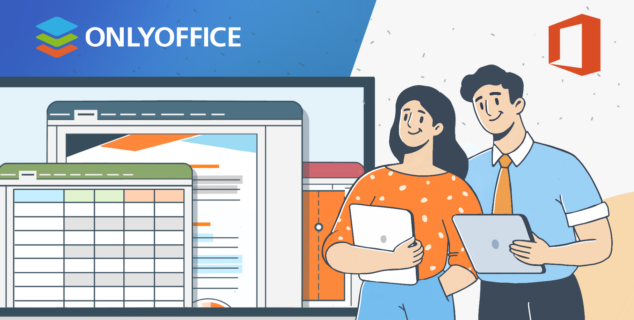Best Virtual Data Room providers in 2025: Complete comparison and guide
As digital collaboration continues to evolve in 2025, businesses of all sizes are turning to Virtual Data Room providers to securely manage confidential documents, streamline due diligence, and maintain compliance. Whether you’re closing a deal or simply need to share sensitive files securely, choosing the right Virtual Data Room (VDR) can make a major difference.
In this comprehensive guide, we’ll cover everything you need to know about Virtual Data Room software, compare top providers, and help you choose the best VDR for your business.

What is a Virtual Data Room (VDR)? Key features & benefits
A Virtual Data Room (VDR) is a secure online repository used for storing and sharing sensitive information. It enables organizations to collaborate on high-stakes projects while maintaining strict control over document access and compliance.
Key use cases include:
- Mergers & Acquisitions (M&A)
- Due diligence
- Corporate restructuring
- Legal transactions
- Fundraising
- Secure file sharing for remote teams
Modern Virtual Data Room software is built with advanced security protocols and collaboration features to ensure seamless yet protected document workflows.

Security & collaboration tools in VDR
Choosing a VDR provider in 2025 means prioritizing security and productivity. Here are the most critical features you should expect:
- End-to-end encryption: Protects data during storage and transmission.
- Granular user permissions: Define who can view, edit, download, or print files.
- Dynamic watermarking: Deter unauthorized sharing by tagging user information.
- Audit trails: Monitor document access and activity logs.
- Secure integrations: Connect with CRMs, cloud storage, and productivity suites.
- Two-factor authentication (2FA) and SSO: Strengthen user identity verification.
- Collaboration tools: Useful instruments for teams like real-time form filling with progress tracking, co-editing of documents, commenting and reviewing, version history and file comparison.
Top Virtual Data Room providers in 2025 compared
1. ONLYOFFICE DocSpace

ONLYOFFICE DocSpace stands out in 2025 as one of the most versatile and user-friendly Virtual Data Room providers available, catering to a wide range of business scenarios—from casual document sharing to high-stakes collaboration on sensitive projects.
Designed with a clear focus on both security and usability, DocSpace enables teams to create custom collaboration environments known as “rooms,” where participants can co-edit documents in real time, view files, or download content depending on their access level.
Each room comes with customizable permissions, allowing administrators to strictly control who can access, edit, or share confidential documents. This granular permission system is complemented by advanced features such as watermarking, file version history, document locking, and activity tracking, ensuring full control over information flow.

Unlike many enterprise-centric Virtual Data Room software solutions, ONLYOFFICE DocSpace is refreshingly approachable, offering an intuitive interface that requires minimal onboarding. It’s particularly well-suited for companies, startups, and remote teams that need a secure, compliant, and affordable way to collaborate on documents with clients, partners, or third parties.
With support for all major file formats—including documents, spreadsheets, presentations, forms and PDFs—DocSpace ensures seamless compatibility and content integrity, even during collaborative editing sessions.

ONLYOFFICE DocSpace leverages the power of artificial intelligence to streamline productivity and make collaboration easier. AI-powered helpers provide teams with the power to work smarter and faster, making DocSpace an even more productive platform for document-intensive workflows. With seamless built-in support for AI helpers, users can create and summarize content, translate text in real-time, and enhance style and grammar without ever leaving the editor.
Security and compliance are central to the platform’s architecture. DocSpace adheres to leading standards such as GDPR, ISO 27001 and HIPAA, making it a trusted option for industries like healthcare, legal services, and finance. Documents are encrypted both in transit and at rest, and two-factor authentication (2FA) adds an additional layer of protection for user accounts. DocSpace also supports self-hosting and private cloud deployment, which is crucial for businesses that need full control over data residency and internal IT infrastructure.
In terms of pricing, DocSpace follows a transparent subscription-based model that scales with your needs: a free Startup plan for small teams, a Business plan at $20/admin/month with advanced features and more storage, and an Enterprise on-premises solution starting at $6,550/server for full data control and customization.
The recent release of ONLYOFFICE DocSpace 3.1 introduced several enhancements, including improved public room customization, smarter user role management, and expanded integration options—further solidifying its position as a leading VDR solution in 2025.
Pricing model: Subscription-based, scalable with usage.
Details: Offers a free Startup plan and a Business plan at $20 per admin per month.
Free trial: Yes.
2. iDeals

iDeals is widely recognized as one of the most secure and feature-rich virtual data room platforms on the market. It is designed specifically for high-stakes, confidential transactions such as mergers and acquisitions, IPOs, and legal proceedings. iDeals offers bank-grade security with 256-bit encryption, customizable document access levels, and a secure fence view mode that prevents screenshots or unauthorized copying.
The platform is user-friendly and supports over 25 file formats with no need for plugins.
Notable features include advanced Q&A workflows, audit trails, multi-language support, and real-time activity tracking. With data centers in multiple jurisdictions and certifications like ISO/IEC 27001:2013 and GDPR compliance, iDeals ensures complete control over your sensitive data.
Although pricing is tailored to project-specific needs, the service is known for its white-glove onboarding and 24/7 multilingual customer support.
Pricing model: Flexible, based on project size and requirements.
Details: Pricing is customized; a 30-day free trial is available.
Free trial: Yes
3. Firmex

Firmex is a reliable virtual data room solution preferred by legal firms, investment banks, and corporate development teams. It’s known for its balance between ease of use and strong security. Firmex’s interface allows users to organize, share, and monitor sensitive documents in a controlled environment.
The platform excels in document version control, watermarking, user permissions, and granular access controls.
It also offers powerful reporting tools, audit trails, and automated indexing, making it easy to keep deals and due diligence processes on track. Firmex is SOC 2 Type II compliant and supports HIPAA regulations, making it a good fit for industries that require strict compliance.
Pricing is flexible depending on whether your project is short-term (transaction-based) or long-term (subscription-based), making it scalable for organizations of any size.
Pricing model: Subscription or per-project, with transparent pricing.
Details: Offers customized solutions; pricing is provided upon request.
Free trial: No.
4. Datasite

Datasite (formerly Merrill DataSite) is an enterprise-grade VDR solution specifically tailored for complex, high-volume transactions. It is most commonly used in investment banking, corporate development, and private equity.
What sets Datasite apart is its AI-powered tools for automatic redaction, translation, and document categorization, which significantly reduce the time spent on manual data processing during M&A deals.
Datasite offers an intuitive dashboard, real-time analytics, and project management features designed to handle large teams across multiple time zones. Security certifications include ISO 27001, GDPR, and CCPA compliance.
Although pricing is available on request, the platform’s premium features are best suited to large enterprises handling multiple concurrent transactions and requiring detailed reporting and customization.
Pricing model: Customized, tailored to enterprise needs.
Details: Pricing is provided upon request, suitable for large-scale transactions.
Free trial: No.
5. Intralinks

Intralinks is a veteran in the VDR space, often used by companies and major financial institutions. It provides top-tier document security, with features like dynamic watermarking, granular permissions, and Information Rights Management (IRM), which allows you to revoke access to documents even after they’ve been downloaded.
Intralinks is designed for high-volume transactions and supports complex workflows, including structured Q&A modules and AI-powered deal analytics.
It also stands out for its deal marketing capabilities, helping investment bankers and dealmakers manage both buy-side and sell-side processes from one platform. Intralinks has certifications such as ISO 27001 and SOC 2 Type II and complies with global privacy regulations. While pricing is quote-based, it reflects its focus on enterprise-grade features and support.
Pricing model: Customized, based on data volume, users, and project duration.
Details: Tailored pricing to meet specific deal requirements.
Free trial: No.
6. SecureDocs

SecureDocs appeals to businesses that need a straightforward, flat-rate Virtual Data Room with enterprise-grade security.
Designed to be deployed within minutes, SecureDocs delivers key features like audit logs, access tracking, and role-based permissions. It doesn’t overwhelm with too many extras, focusing instead on reliability and ease of use. This makes it especially popular among healthcare, biotech, and early-stage startups who need HIPAA and SOC 2 compliance at a predictable cost. SecureDocs also offers a free trial, giving users a risk-free way to evaluate the platform.
Pricing model: Flat-rate.
Details: Starts at $250/month for unlimited users and documents; a 3-month plan is available at $400/month.
Free trial: Yes.
Best Virtual Data Rooms by use case
Not all VDRs are built the same. Here’s how top providers cater to different industries and business needs:
Companies of all sizes – ONLYOFFICE DocSpace
ONLYOFFICE DocSpace is perfectly positioned for business of all sizes that need a balance of simplicity and power. Unlike some enterprise-heavy platforms, DocSpace offers collaborative document editing, custom access settings, and built-in communication tools—all in a user-friendly interface.
The ability to create secure rooms for clients, partners, or internal teams makes it especially useful for managing multiple ongoing projects with different stakeholders.
The flat subscription pricing ensures it remains cost-effective, even for companies scaling up rapidly.
Mergers & acquisitions – Datasite
For high-stakes M&A transactions, Datasite offers a purpose-built environment to manage the intense documentation and security needs of corporate dealmaking. With tools like AI-assisted data classification, automated redaction, and real-time analytics dashboards, Datasite helps teams conduct due diligence faster and with fewer risks.
Its multilingual support and global compliance standards make it ideal for international M&A deals involving law firms, investment banks, and corporate strategists.
Legal firms – Firmex
Firmex is a natural fit for law firms and legal teams that require airtight control over sensitive client data. It provides easy-to-navigate folder structures, detailed audit trails, and court-admissible document tracking. The platform allows attorneys to quickly invite external users while preserving confidentiality and minimizing human error.
Features like automatic indexing and Q&A sections make it particularly useful for litigation preparation and regulatory investigations.
Private equity & venture capital – iDeals
iDeals has become a go-to solution for private equity and VC firms that need to manage investor reporting, portfolio monitoring, and deal sourcing under strict confidentiality. Its features support fast deal turnover, granular permissioning, and data analytics to measure investor engagement.
The platform’s ability to host multiple deals simultaneously, while maintaining strict separation and access controls, is a huge advantage for firms managing several investments in parallel.
Healthcare & biotech – SecureDocs
In industries like healthcare and biotech, where compliance with HIPAA and secure audit trails is non-negotiable, SecureDocs shines with its simplicity and security. It’s particularly effective for managing clinical trial data, intellectual property, and board communications.
The intuitive setup process, combined with flat-rate pricing, makes SecureDocs a great fit for medical startups or research institutions operating under tight budgets but high compliance standards.
Key features to look for in a VDR provider
When selecting a Virtual Data Room software solution, pay close attention to these core features:
- Compliance certifications: Look for GDPR, HIPAA, SOC 2, or ISO 27001.
- Granular access controls: Critical for managing user roles and document permissions.
- Watermarking and tracking: Prevent data leaks and monitor user activity.
- 24/7 customer support: Especially important during time-sensitive transactions.
- User interface and ease of use: Simplifies onboarding and team productivity.

Virtual Data Room pricing: What to expect in 2025
VDR pricing varies depending on the provider and use case. Here are the main Pricing models:
- Per-page: Ideal for small projects but can get expensive at scale (e.g., Intralinks).
- Per-user: Scalable for teams of various sizes (e.g., iDeals).
- Flat-rate/Subscription: Predictable pricing with unlimited storage or users (e.g., ONLYOFFICE DocSpace, SecureDocs).
- Custom quotes: For enterprise clients requiring tailored solutions (e.g., Datasite, Firmex).
How to choose the right VDR provider for your business
Selecting the right Virtual Data Room provider is a strategic decision that depends on your business goals, security priorities, and operational needs. While all VDRs aim to streamline secure file sharing and collaboration, not all are created equal. Use the following criteria to guide your evaluation process and ensure you choose a platform that aligns with your specific requirements:
1. Define your security and compliance needs
Before evaluating VDR software, identify the level of data protection your business demands. If you operate in a regulated industry—such as healthcare, finance, or legal services—compliance with standards like GDPR, HIPAA, SOC 2, or ISO 27001 is non-negotiable. Look for providers that offer enterprise-grade security features such as 256-bit encryption, two-factor authentication (2FA), granular access permissions, and detailed audit logs. Some solutions also offer advanced tools like fence view, dynamic watermarking, or information rights management (IRM) to ensure that sensitive documents remain under your control at all times.
2. Estimate your document volume and user base
The scale of your Virtual Data Room deployment will impact pricing and performance. Start by estimating the number of documents you plan to store, share, and manage—along with how many users will require access. Some VDR providers charge per page, per user, or based on storage volume, so it’s essential to choose a Pricing model that aligns with your projected usage. Additionally, consider whether your users will be internal team members only or include external collaborators, such as clients, auditors, or investors. A scalable VDR should accommodate growth in both content and user count without compromising speed or usability.
3. Consider your budget and long-term scalability
Your VDR should be an investment that grows with your business. While low-cost providers might seem attractive initially, they may lack key features or support for expanding workflows. Evaluate whether the VDR offers tiered pricing plans, volume discounts, or enterprise customizations. If your company anticipates scaling up operations, adding new departments, or managing multiple concurrent projects, choose a provider that offers flexibility—such as multi-room setups, integrations with other business tools, or hybrid deployment options (cloud and on-premise). Avoid lock-in by confirming that you can export your data easily if you switch providers later.
4. Test for ease of use and integration options
No matter how secure or powerful a VDR is, poor usability can quickly derail adoption. Choose a platform with an intuitive interface, minimal onboarding time, and clear role management features. Ideally, the VDR should support drag-and-drop uploads, real-time document collaboration, and searchable content indexing. Additionally, verify which integrations are available—can the VDR connect with your CRM, project management tools, or cloud storage platforms like Google Drive or Dropbox? The more seamless the integration, the smoother your workflows will be.
5. Prioritize customer support availability
Responsive customer support can make a huge difference, especially when you’re under pressure to complete due diligence, audits, or negotiations. Ensure your provider offers multi-channel support (chat, email, phone), ideally with 24/7 availability, and check whether they include dedicated onboarding assistance or account managers for larger deployments. Look for user reviews that mention support experiences—good technical documentation and fast issue resolution are crucial indicators of a reliable partner.
Future trends in Virtual Data Rooms (2025 and beyond)
The VDR landscape is rapidly evolving. Here are the most exciting trends to watch:
AI-powered document analytics
Artificial intelligence is transforming the Virtual Data Room landscape. VDRs now use AI to automate due diligence by identifying key terms, flagging anomalies, and clustering similar documents for faster review. These tools reduce the time spent on manual document review and help teams uncover red flags that might otherwise go unnoticed. Expect even more advanced AI features in the near future, including predictive deal outcomes and sentiment analysis in communication logs.
Blockchain integration
Blockchain technology is gaining traction in the VDR space for its ability to ensure data integrity and create tamper-proof logs. By decentralizing access records and time-stamping user actions, blockchain can provide verifiable proof of compliance and reduce the risk of data manipulation. While still in the early stages of implementation, blockchain-based audit trails could become standard in industries with strict legal or financial accountability.
Hybrid cloud models
As companies seek more control over their data, hybrid VDR deployments—combining public cloud, private cloud, and on-premise components—are becoming more popular. This flexible infrastructure allows businesses to balance performance, security, and cost while maintaining sovereignty over sensitive information. It’s especially beneficial for multinational organizations that must meet region-specific data residency laws.
Mobile-first VDR access
With remote work now a permanent fixture, VDR providers are optimizing mobile experiences for executives and dealmakers on the go. In 2025, expect faster mobile interfaces, better offline access, and enhanced biometric authentication. These improvements empower users to review, approve, or annotate documents securely from smartphones or tablets—without compromising compliance.
Context-aware permissions
Next-generation VDRs are introducing intelligent, context-aware access controls that adapt to document sensitivity and user behavior. Instead of setting static rules, administrators can define dynamic policies—such as limiting download options on sensitive documents viewed outside the office or revoking access after a time window expires. These adaptive controls reduce the risk of human error and enhance data security in real time.
Final verdict: Top recommended VDR providers in 2025
Here are our top picks for the best Virtual Data Room providers in 2025:
- ONLYOFFICE DocSpace
Best for: Business and activities of any size, field and structure
Pros: Clean UI, collaborative editing, built-in document editor, flat pricing
Cons: Still expanding enterprise integrations - iDeals
Best for: Enterprise-level transactions
Pros: Rich features, strong compliance, widely used in M&A
Cons: Higher learning curve and cost - Firmex
Best for: Legal and professional services
Pros: Solid audit trails, intuitive UI for legal workflows
Cons: Less modern UI compared to newer competitors
By aligning your business goals with the right VDR software, you’ll gain not only data security but also peace of mind during critical business processes.
Create your free ONLYOFFICE account
View, edit and collaborate on docs, sheets, slides, forms, and PDF files online.


